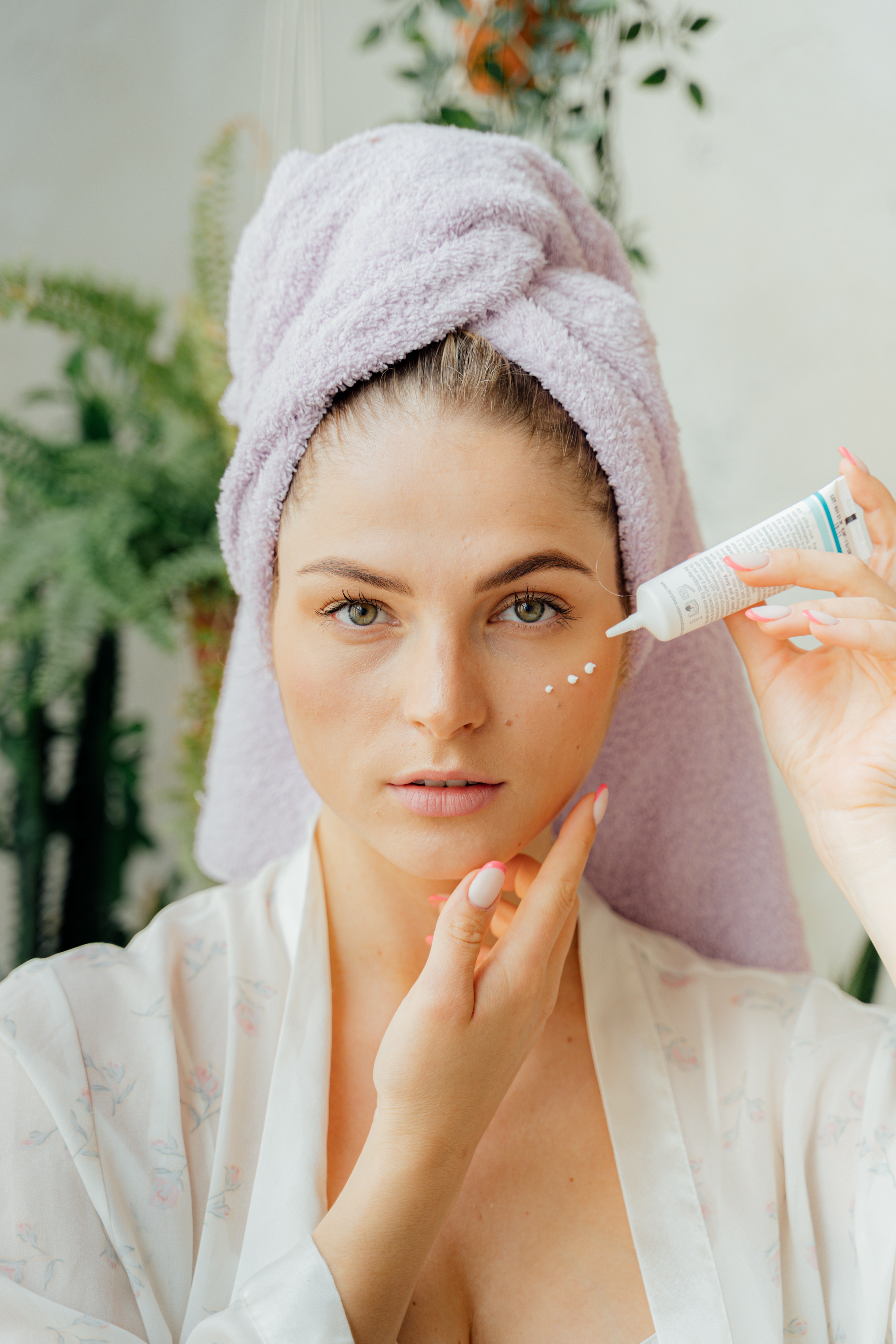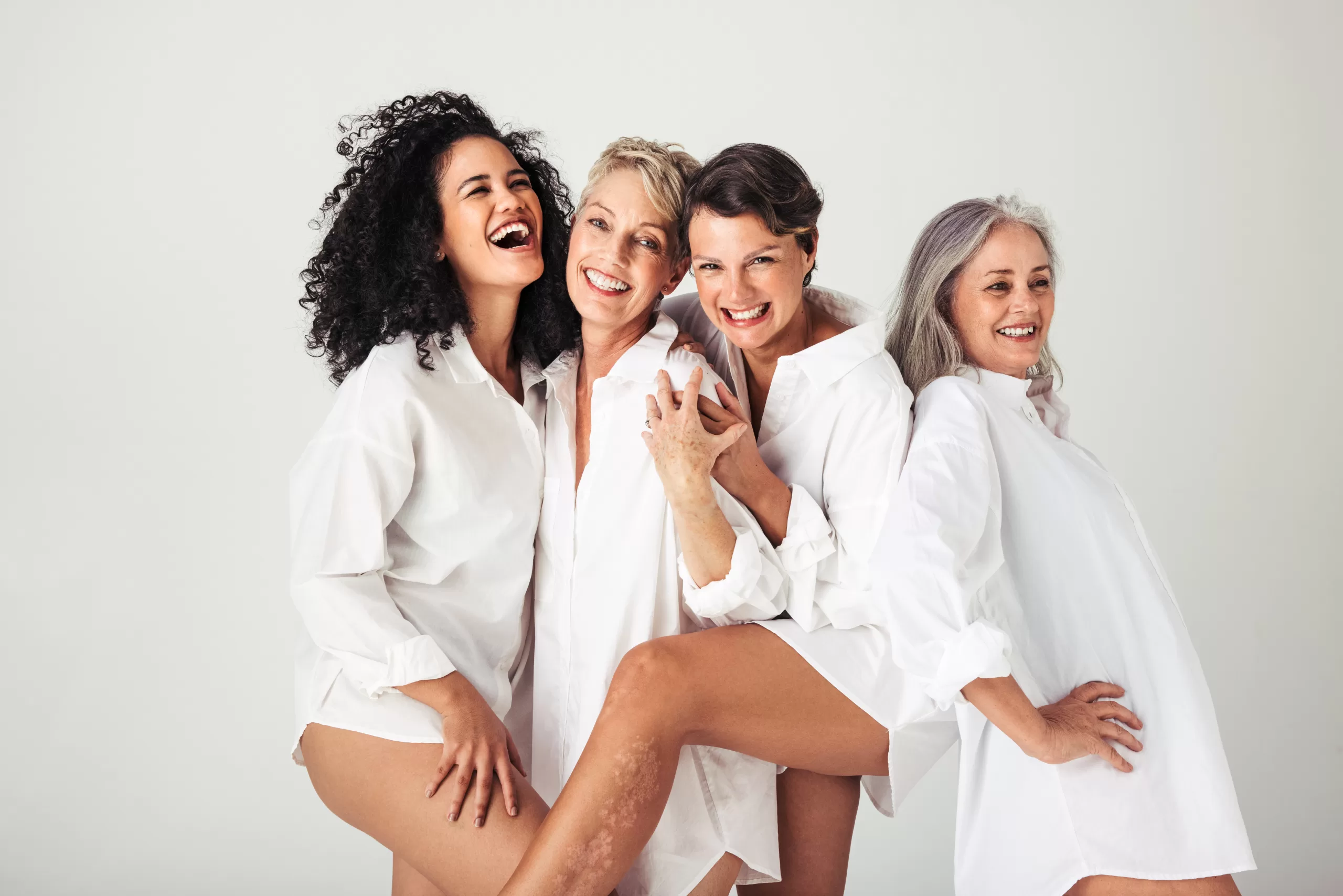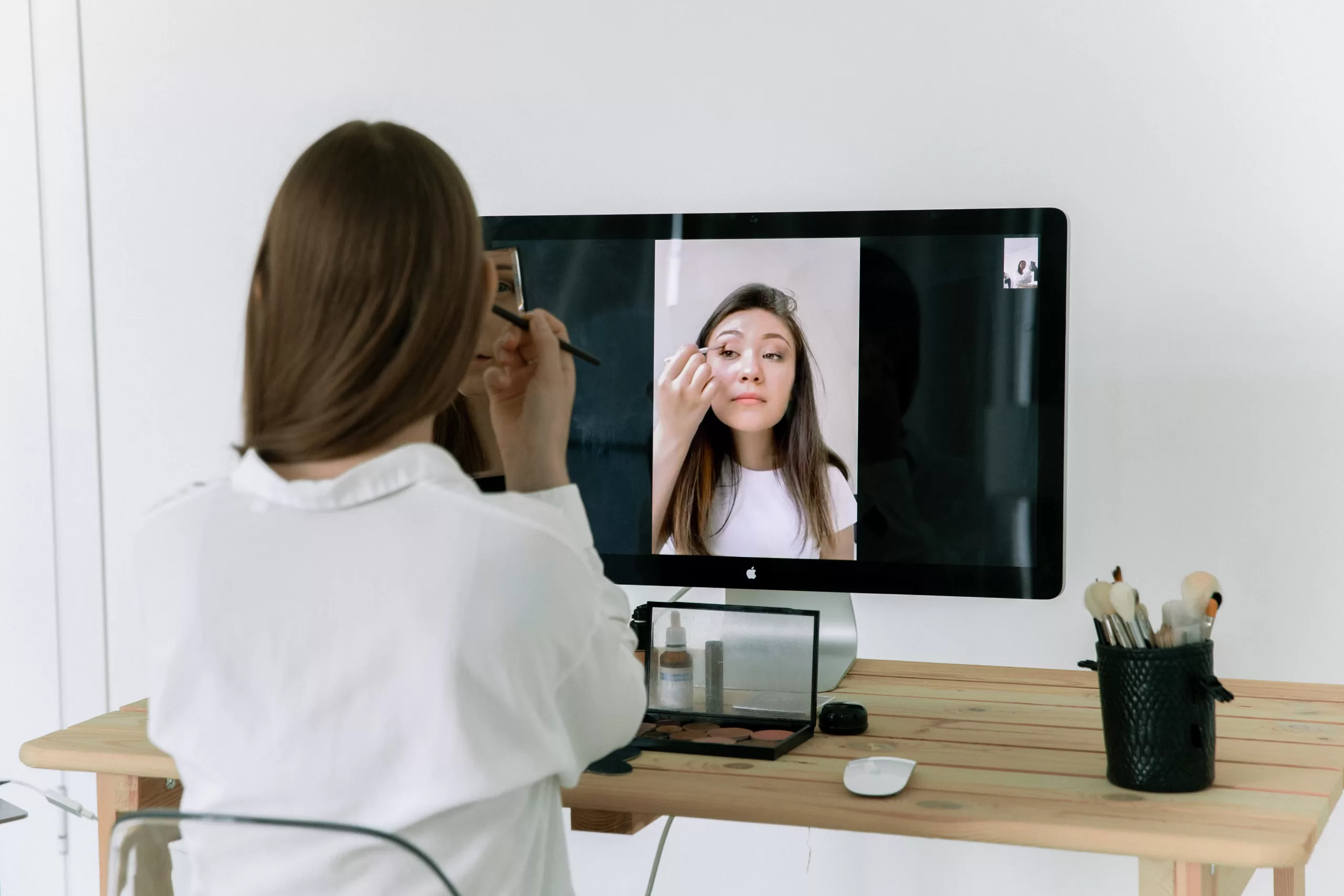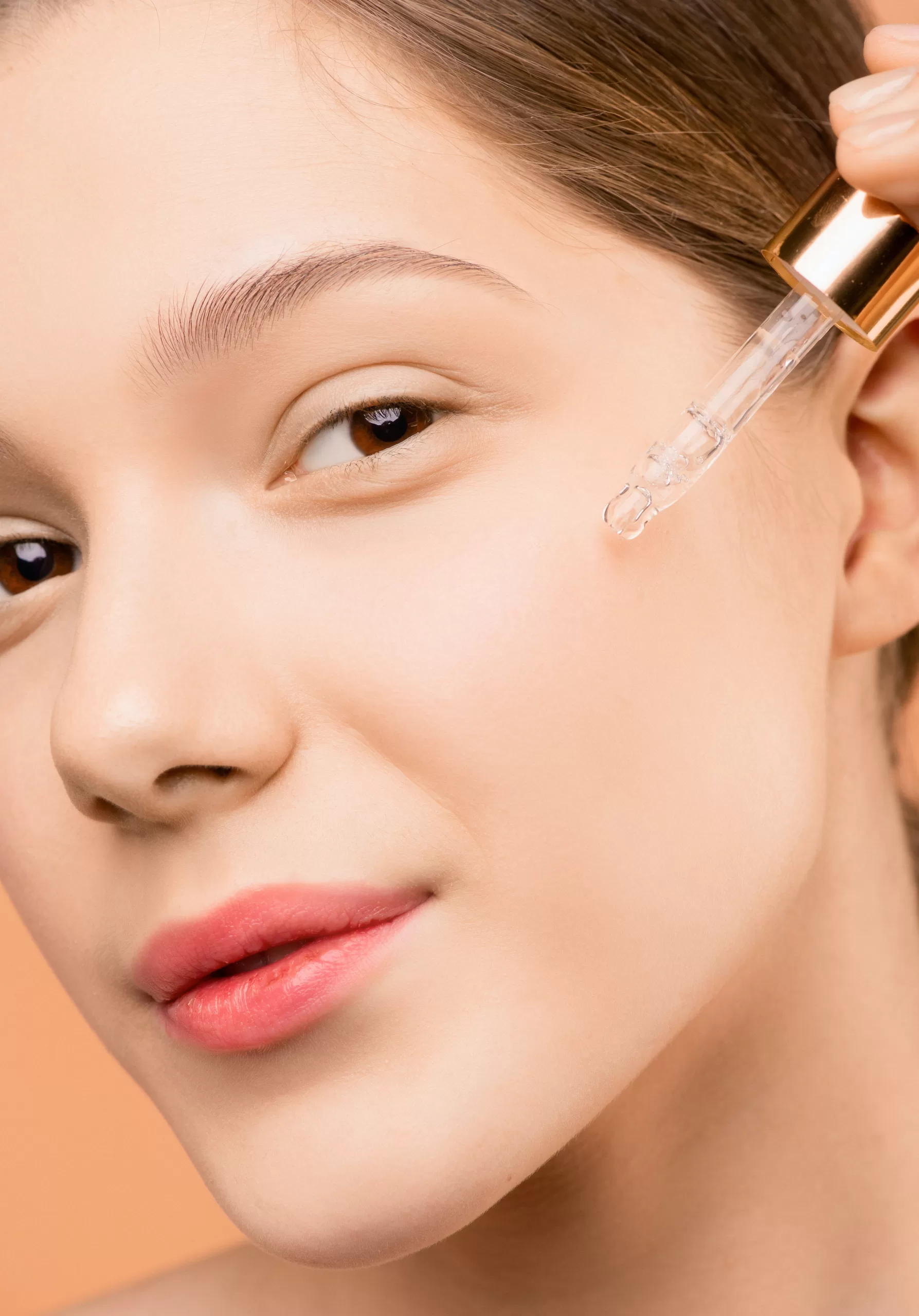In the crowded, often overwhelming world of skincare, one ingredient has consistently maintained its status as a rockstar, defying the test of time: Retinol. Known for its powerful anti-aging and skin-restoring abilities, retinol is a must-have for many skincare enthusiasts. Let’s look deeper into this powerhouse and discover why it’s crucial for women’s skincare.
The Science Behind Retinol
Retinol is a derivative of Vitamin A, a nutrient that plays a crucial role in maintaining skin health. Vitamin A is divided into two types: retinoids, found in animal products like fish, meat, and dairy, and carotenoids, found in plants like carrots and sweet potatoes.
Retinol falls under the category of retinoids, which are potent and bioavailable, meaning our body can utilize them directly. They are essential for skin health, pivotal in cell turnover and collagen production, two critical processes for maintaining smooth, youthful skin.
How Retinol Works
Retinol works primarily by promoting the turnover of skin cells. As we age, our cell turnover process slows down, leading to dull, uneven skin and, potentially, wrinkles. Retinol boosts this process, aiding in the shedding of dead skin cells and promoting the growth of new ones. This not only leads to a brighter, more radiant complexion but also unclogs pores, thereby reducing the occurrence of acne.
Additionally, retinol boosts collagen production. Collagen is a protein that provides structure and elasticity to our skin. With age, collagen production slows, leading to sagging skin and wrinkles. By boosting collagen production, retinol helps to restore skin elasticity and reduce the appearance of fine lines and wrinkles.
The Importance of Retinol
Retinol is essential to a well-rounded skincare routine for women, particularly as they age. It’s one of the few skincare ingredients thoroughly studied and proven to help improve skin texture, tone, and signs of aging. Moreover, retinol can benefit women with acne or hyperpigmentation, as it promotes cell turnover and reduces inflammation.
However, it’s important to remember that while retinol is powerful, it’s also potent. It can cause skin irritation, mainly when you first start using it. That’s why it’s essential to introduce it slowly into your routine, starting with a lower concentration and gradually increasing it as your skin adjusts.
Popular Retinol Products
Now that you understand why retinol is so crucial in skincare let’s look at the top five retinol products on the market. These were selected based on customer reviews, effectiveness, and overall popularity.
- SkinCeuticals Retinol 1.0: This high-strength retinol cream is ideal for experienced retinol users. It helps to reduce the appearance of fine lines, wrinkles, and age spots while improving skin texture and tone.
- The Ordinary Retinol 0.5% in Squalane: A budget-friendly option, The Ordinary’s retinol serum is perfect for beginners, offering a lower concentration that’s less likely to cause irritation while still delivering results.
- RoC Retinol Correxion Deep Wrinkle Anti-Aging Night Cream: An award-winning product, RoC’s night cream is known for reducing deep wrinkles and crow’s feet in 12 weeks.
- Paula’s Choice Clinical 1% Retinol Treatment: This is a potent, lightweight lotion that combines retinol with soothing ingredients to reduce inflammation and skin irritation.
- Drunk Elephant A-Passioni Retinol Cream: This vegan, cruelty-free cream combines 1% retinol with nourishing ingredients like peptides, vitamins, and oils to promote a more radiant, smoother complexion.
Retinol Pairings
Pairing retinol with other skincare ingredients can amplify its benefits, but choosing the right ones is crucial to avoid potential irritation. Let’s look at a few ingredients that work well with retinol:
Hyaluronic Acid:
Hyaluronic Acid is a humectant that attracts and retains moisture in the skin. Retinol can help mitigate some of the drying effects retinol can have, leaving the skin hydrated and reducing the likelihood of peeling and flaking.
Ceramides:
Ceramides are lipids (fats) that makeup around 50% of the skin barrier. They help to hold skin cells together, forming a protective layer that plumps the skin and holds moisture. Using retinol and ceramides can protect the skin’s barrier and reduce the potential irritation and dryness from retinol.
Niacinamide:
Niacinamide, also known as Vitamin B3, has numerous benefits, including improving skin texture, reducing redness, and balancing oil production. It can support the use of retinol by strengthening the skin’s barrier function and reducing inflammation, thus minimizing potential irritation.
Peptides:
Peptides are chains of amino acids that help stimulate collagen production. They can support retinol’s work by further boosting collagen and elastin synthesis, improving fine lines, wrinkles, and overall skin firmness.
Antioxidants:
Retinol increases cell turnover, leaving skin vulnerable to free radicals. Antioxidants help to neutralize these free radicals. Vitamins C and E are particularly beneficial, as they can help brighten skin, improve skin texture, and reduce the appearance of fine lines and wrinkles.
However, it’s important to note that while these ingredients can pair well with retinol, they don’t necessarily need to be applied simultaneously. For example, retinol is often used at night due to its photosensitivity, while antioxidants like vitamin C are commonly used in the morning to help protect against free radicals throughout the day. As with any skincare routine, paying attention to how your skin responds and adjusting as needed is crucial.
Remember, while retinol is a powerful skincare ingredient, it’s not a magic bullet. A good skincare routine involves a holistic approach, including a healthy diet, adequate sleep, and consistent use of other beneficial skincare products. Always consult a dermatologist or skincare professional to ensure you’re using the right products for your skin type and concerns.
Next, check out Retinol Forms and How to Use Them: The Different Faces of Retinol.







![🍂✨ It’s Time for Thanksgiving Reflections! ✨🍂
Hey everyone!
Today, I’m inviting you to join a very special journey on my blog - “A Thanksgiving to Remember: Embracing the Bittersweet Beauty of Change.” This year, Thanksgiving is more than just a holiday; it’s a reflection on life’s fleeting moments, the ‘lasts’ that sneak up on us, and the joy of new beginnings.
👩👧👦 Whether it’s the nostalgia of past Thanksgivings, the thrill of new traditions, or the bittersweet feeling of an empty chair at the table, we all have stories that make this time of year unique.
➡️ Read the full post [Link in Bio and Story] and let’s share the warmth and wisdom this season brings.
📲 I would love to hear from you – your traditions, memories, and what Thanksgiving means to you. Let’s make this Thanksgiving one for the books!
#ThanksgivingMemories #ShareYourThanksgiving #FamilyTraditions #BlogPost #HeartfeltStories #KidsGrowUp #HolidayAfterLoss](https://hearthandhighlight.com/wp-content/plugins/instagram-feed-pro/img/placeholder.png)